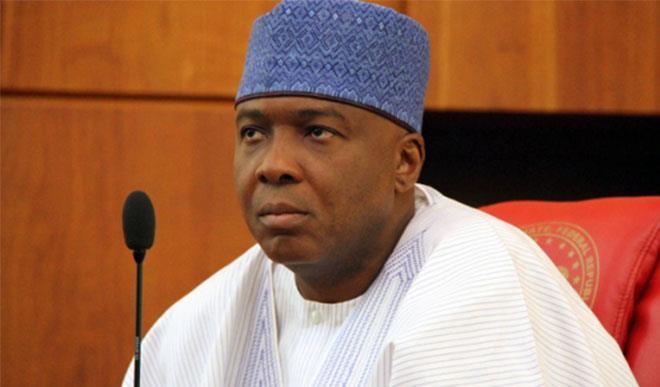National Assembly and Saraki’s reform agenda
One image the National Assembly managed to carve for itself over the years is that of a corrupt and indolent institution. It is a perception which actually is far from reality. It is the belief of not a few Nigerians that the National Assembly as an arm of government is nothing but a cesspool of […]


One image the National Assembly managed to carve for itself over the years is that of a corrupt and indolent institution. It is a perception which actually is far from reality.
It is the belief of not a few Nigerians that the National Assembly as an arm of government is nothing but a cesspool of corruption populated by fat cat politicians that have no positive impact on the country other than earning huge salaries and allowances to the detriment of the nation’s economy and its citizens.
The negative perception is not only limited to the lawmakers as the staff of the National Assembly too share in the same not too palatable public criticism.
Reasons for such false assumptions are not far fetched. It was borne out of among other things the lack of adequate knowledge and awareness of the role and importance of the legislature in a democratic setting and the reported financial scandals that were perceived to be the hallmark of the institution. Also, the executive in order to keep the National Assembly down and ensure it is unable to effectively oversee or check the other arms has deliberately created that public perception and nurture it consistently.
Unfortunately, previous leaderships of the federal legislature did not see this wrong perception and image crisis as a serious problem. They had taken it that since the National Assembly is a key constitutional creation, whatever the complaint is, it will continue to trudge on.
This was the scenario when the present leadership of the National Assembly under the chairmanship of the Senate President, Dr. Abubakar Bukola Saraki mounted the saddle of leadership on June 9, 2015. However, since his inauguration, Saraki has left no one in doubt about his resolve to change the negative perception against the legislature through introduction of various reform programmes and initiatives.
The reforms as outlined by Saraki from the onset were targeted towards increasing the relevance of the legislature to the people by focusing on issues and subjects aimed at improving the standard of living of the people. This he hoped to do by improving on the capability and capacity of the lawmakers, their aides and the management staff for optimal productivity in law making business. Another target is controlling and curbing wastages and leakages in spending the resources of the National Assembly and ensuring value for money in all its undertakings. Also targeted was the provision and maintenance of new and existing equipment and infrastructure to ensure a conducive working environment for lawmakers, aides and staff. Some of the operational and structural changes that have been introduced in the past 20 months include;
Resumption time for plenary
Though the resumption time for the Senate was officially slated for 10am from the beginning of the Fourth Republic in 1999, the arrangement was in the past observed mostly in breach. It was almost a tradition for the Senate to always reconvene much behind the scheduled time and adjourned at 2pm as provided by the Senate Rules. The current Senate, largely due to the reformist posture of its President has made the 10am sitting time almost sacrosanct and that has enabled it to achieve a lot in about two years. Also, very often the Senate extends sitting till late as 4.pm.
Engagement with CSOs on the 2016 budget
In February 2016, the Senate, for the first time in history convened interactive session with Civil Society Organisations (CSOs) to rub minds on the 2016 budget presented by President Muhammadu Buhari.
With this engagement with CSOs, the Senate under Saraki is broadening participation in the process of budget preparation and seeking assistance from non-governmental organisations and specialised bodies towards improving on the process.
Public hearing on the 2017 budget
Perhaps, the most noticeable reform of legislative process is the innovation of organising a public hearing on the 2017 budget. It is obviously an improvement on last year’s engagement with the CSOs. For the first time in the history of budget passage, stakeholders, Civil Society Organisations and individuals were given opportunity to make an input into the budget.
Setting up of Senate Compliance Committee
As part of its reform agenda, the Senate recently set up a committee to ensure compliance with its resolutions and also to monitor and evaluate the performance of its standing committees as a means of self appraisal to ensure productivity.
Audit of NASS staff
To verify the skills, efficiency and motivation of the management staff, Saraki in January directed the management of the National Assembly to carry out a holistic audit of the human resource in the National Assembly.
Tour of National Assembly facilities,
Barely three months into office, the Senate President embarked on a familiarisation tour of all National Assembly facilities scattered around Abuja. It was during the visit that Saraki discovered an abandoned National Assembly Television (NASS TV) studio worth over N500 million.
Isa is a Special Assistant to the Senate President on Public Affairs
